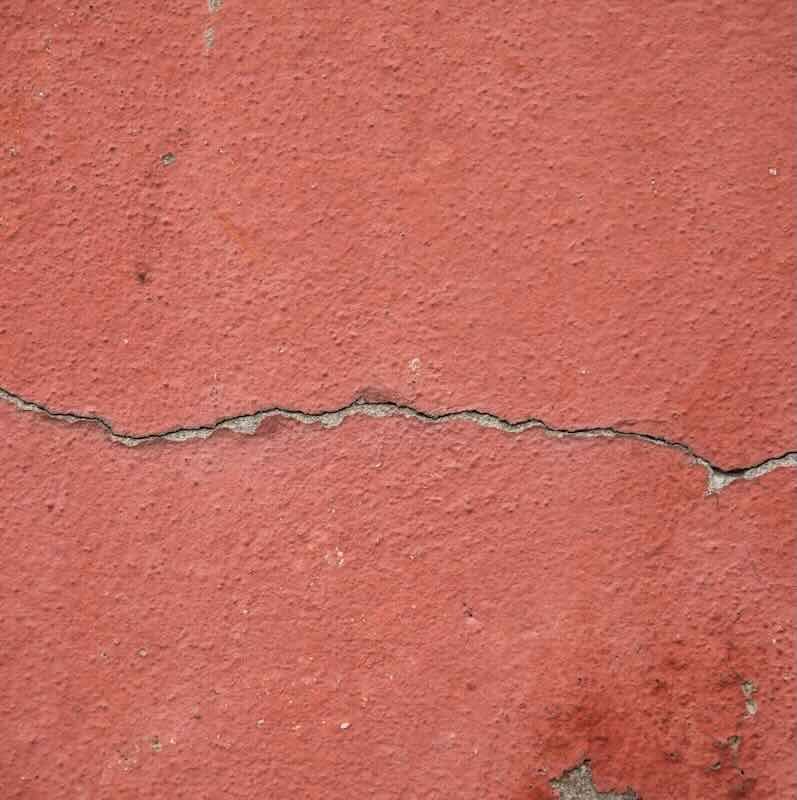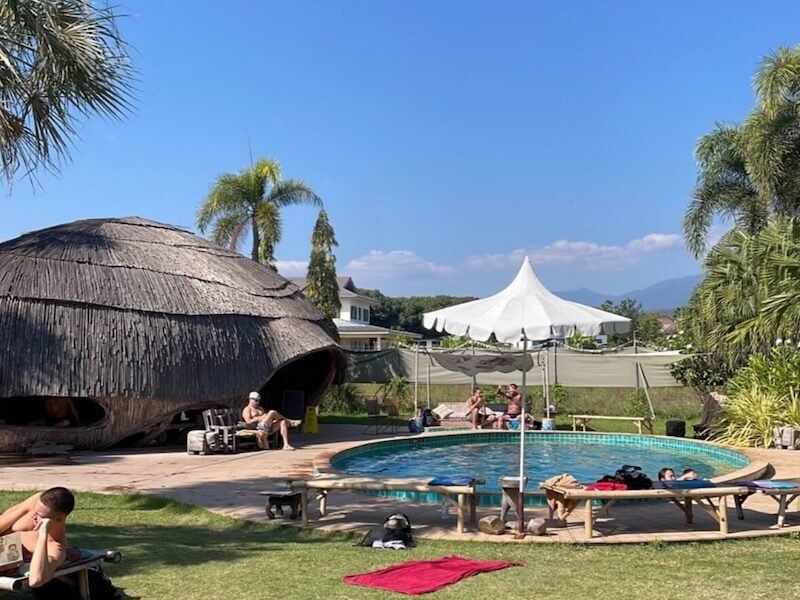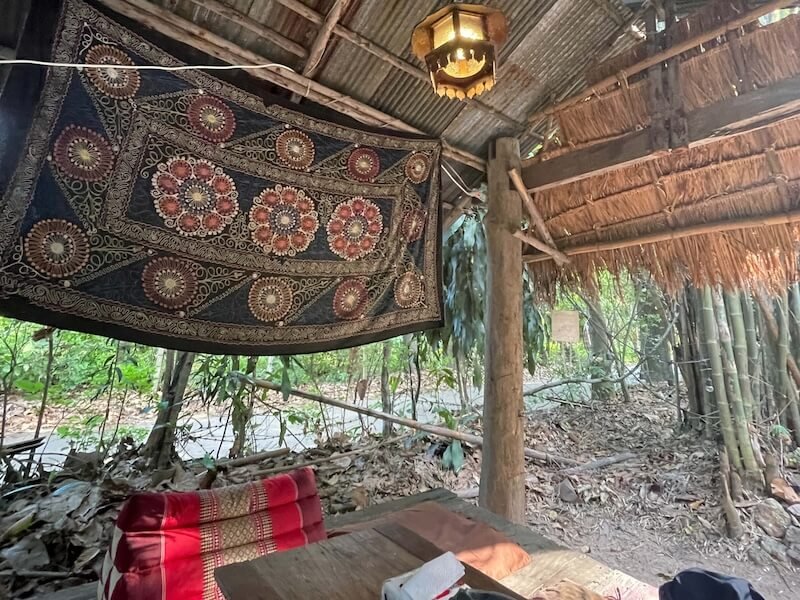Here’s What We Just Experienced With Chiang Mai’s Latest Earthquake (28th March 2025)

Just today, we experienced our first major earthquake here in Chiang Mai, and let me tell you, it’s not something you forget.
It hit without warning registering at the epicenter in Myanmar at a strength of 7.7! One moment everything was still, the next, the ground beneath us started shifting. It felt like a wave of sudden dizziness, like the floor was moving and we couldn’t keep our balance. Thankfully, we live in a one storey house, so my wife and I were able to step outside quickly and wait it out safely.
But friends living in high rise condos told us their buildings were violently swaying side to side, making them feel physically sick and unable to walk.
The earthquake originated in Myanmar but was felt right across Thailand, especially here in Chiang Mai. Early reports are still coming in, but so far we’ve heard of major building cracks in Chiang Mai near central festival, one unfinished bridge collapse near padaet, traffic lights are out of order in some locations, hospitals have been evacuated temporarily, and some buildings have also been evacuated temporarily.
We have seen videos of swimming pools overflowing in Chiang Mai and even one confirmed building collapse in Bangkok as well. If you or your loved ones were affected, we sincerely hope everyone is safe.
After going through it ourselves and speaking with others, we realised one thing: most people here have no idea what to do during an earthquake. That’s why we’ve put this article together, so you’re not caught off guard and know what to do in the event you experience one also.
We’ll walk you through:
- The history of earthquakes in Chiang Mai
- How often they happen and how bad they’ve been
- What to do if one hits while you’re here
- Practical tips to stay safe and prepared
Whether you’re visiting Chiang Mai, living here long term, or just curious, this is the guide we wish we had before the ground started moving. Let’s get into it.
A Look Back: Chiang Mai’s History with Earthquakes
When most people think of Thailand, they picture tropical storms, rainy seasons, maybe even floods, but earthquakes? Not usually. That’s why they tend to catch people off guard. But here in Chiang Mai, tremors are not as rare as many assume.
The truth is, northern Thailand sits uncomfortably close to the Sagaing Fault Line, one of Southeast Asia’s most active tectonic fault zones. This massive fault runs through Myanmar, just north of us, and when it shifts Chiang Mai often feels the ripple effects.

While the city itself isn’t sitting directly on top of a major fault, it’s close enough that strong earthquakes in nearby regions can absolutely make their presence known here.
Over the years, a few notable quakes have shaken Chiang Mai, some stronger than others:
- May 5, 2014 – A 6.0 magnitude quake struck Chiang Rai, just northeast of Chiang Mai. It cracked roads, damaged temples, and left the region visibly shaken. The tremors were strongly felt in Chiang Mai, with some older structures suffering minor cracks.
- March 2022 – A cluster of smaller quakes originating in northern Myanmar sent a series of light tremors through Chiang Mai. Nothing major, but enough to remind residents of the region’s tectonic volatility.
- 1995 Myanmar Earthquake – This quake struck just over the border in Myanmar and was strongly felt in Chiang Mai. It served as a reminder of the region’s proximity to seismically active zones.
While these events are relatively infrequent, they’re real enough to warrant being taken seriously. Earthquakes in Chiang Mai may not be a weekly concern, but they’re part of the landscape, quiet until they’re not.
And when they do hit, being unprepared can turn a scary moment into a dangerous one. So let’s talk about how often they happen, and what kind of risk you should really expect if you’re living here.
How Often Do Earthquakes Happen in Chiang Mai?
If you’ve just experienced your first earthquake in Chiang Mai, you might be wondering, how common is this?
The short answer: earthquakes in Chiang Mai are rare, but they’re not a one off.
Small tremors happen more frequently than most people realize, though they’re usually too weak to notice. It’s only every few years that Chiang Mai experiences a quake strong enough to shake buildings or send people rushing outside.
On average:
- Minor tremors – happen every year, but most people sleep through them or mistake them for passing trucks.
- Noticeable quakes – occur around every 3 – 5 years, often triggered by seismic activity in nearby Myanmar or Laos.
- Significant events – are uncommon, but they do happen, like the 6.0 magnitude quake from Chiang Rai in 2014 or the recent earthquake that just hit Chiang Mai.
So while Chiang Mai isn’t sitting on a major fault line, its proximity to regional fault systems means it’s not entirely off the seismic map either. For most residents, it’s not something you need to fear, but it is something worth being informed about.
What’s the Strongest Earthquake Ever Felt in Chiang Mai?

The most powerful earthquake in recent history that shook Chiang Mai wasn’t actually centered here, but it made its presence known.
On May 5th, 2014, a 6.0 magnitude earthquake struck Chiang Rai, about 150 kilometers northeast of Chiang Mai. Despite the distance, the shaking was strong enough to rattle nerves and buildings across the region.
In Chiang Mai, the tremor was felt city wide and caused:
- Cracked walls and roads
- Visible damage to Buddhist temples
- Evacuations from buildings
- A sudden spike in interest about earthquake safety (for good reason)
While no large-scale destruction occurred in Chiang Mai itself, the quake served as a wake-up call. It reminded everyone, locals, expats, and city planners alike, that Northern Thailand isn’t immune to seismic activity.
To date, this remains the strongest earthquake felt in Chiang Mai. And given that most buildings here weren’t designed with earthquakes in mind, even moderate quakes like this can be unnerving.
Fortunately, events of this magnitude are rare, but when they do happen, they tend to leave a lasting impression.
This is why we strongly recommend having a solid health insurance policy in place to always be prepared for the worst. We get asked all the time which insurance provider we use and the answer is always the same: Genki. They’re the best we’ve found in all our years living abroad. We had a really simple claim experience with them, same goes for our friends who use them and it was one of the few policies we could activate abroad, without being in our home country. Check them out if you live in Thailand or are planning to move here, don’t end up on go fund me begging for help to pay your medical bills!

We drink a lot of coffee. When you buy something using links on our site, we may earn an affiliate commission to pay for that coffee at no extra cost to you.
What to Do During an Earthquake in Chiang Mai: A Practical Safety Guide
Here’s exactly what you need to do, before, during, and after an earthquake to keep yourself and those around you safe and calm.
If You’re Indoors When the Earthquake Starts
This is where most people panic, but your actions in the first few seconds matter.
- Stay indoors until the shaking stops. Most injuries happen when people rush outside and are hit by falling debris like glass, tiles, or signage.
- Drop, Cover, and Hold On. Get down low, take cover under a sturdy table, desk, or solid piece of furniture and hold on until the shaking ends.
- Stay away from windows, mirrors, glass doors, and anything that could shatter or fall. Bookshelves, hanging lights, and cabinets can become dangerous projectiles.
- Do NOT use elevators. If you need to leave the building after the shaking stops, use the stairs.
- If there’s no sturdy furniture nearby, protect your head and neck and crouch beside an interior wall. Doorways are not always the safest place unless you’re sure they’re reinforced.
If You’re Outside
- Move away from buildings, walls, trees, utility poles, and anything else that could fall. Bricks and glass can fall from above even after the quake ends.
- Get to an open space. A park, empty street, or parking lot is safer than being near structures.
- Stay alert for signs, wires, or debris that may become hazards.
If You’re in a Car or Riding a Scooter
- Pull over safely and come to a complete stop. Try to avoid bridges, overpasses, underpasses, and tall buildings.
- Stay in the vehicle. It’s generally safer inside your car than outside near falling debris.
- Turn on your hazard lights. This alerts other drivers to slow down and adds visibility.
- If you’re on a scooter, carefully stop and move away from the road if safe to do so. Find an open area away from buildings and traffic.
Immediately After the Earthquake
Once the ground stops shaking, your next steps are crucial.
- Check yourself and others for injuries. Apply first aid if necessary and call emergency services for serious injuries.
- Be cautious when exiting buildings. Watch for damaged stairwells, loose electrical wires, gas leaks, or weakened structures.
- Inspect your surroundings. If your home or accommodation shows signs of structural damage (cracks in walls, sloping floors, jammed doors), do not re-enter until a professional gives the all-clear.
- Expect aftershocks. These smaller quakes can follow minutes, hours, or even days later. Treat them with the same caution as the initial quake.
- Avoid using your phone unless it’s for emergencies. Networks often get congested, conserve battery and keep lines free for emergency services.
- Listen for updates. Local news, radio, or official government channels (such as the Thai Meteorological Department) will provide earthquake information and safety instructions.
Basic Earthquake Emergency Kit Essentials
Even a small kit can make a big difference. Here’s what’s smart to keep at home or in your scooter/car:
- Flashlight or headlamp
- Portable phone charger (power bank)
- Bottled water and small snacks
- Basic first aid kit
- A whistle (useful if trapped or to call for help)
Final Tip: Talk It Through in Advance
If you live with others, discuss what to do in the event of a quake. Pick a safe spot to gather, decide who grabs what, and make sure everyone knows the basics. Preparation doesn’t need to be dramatic, it just needs to be practical.
Being caught in an earthquake can be scary, but knowing what to do gives you a huge advantage. Stay calm, stay safe, and take smart steps before, during, and after.
Should You Worry About Earthquakes in Chiang Mai?

In short? Not really. But should you know what to do just in case? Absolutely.
Look, Chiang Mai isn’t exactly sitting on the Pacific Ring of Fire, and the odds of experiencing anything serious are incredibly low.
Most people live here for years without ever feeling a single tremor. And when one does happen, it’s usually just enough to knock a picture frame sideways or make you question whether you’re dizzy or the floor really did just wobble.
But here’s the thing: it’s not about being paranoid, it’s about being prepared.
No need to stockpile tinned beans and build a bunker, just know your exits, pick a safe spot, and maybe don’t hang heavy mirrors over your bed (you know, just in case gravity decides to get dramatic).
If you’re planning to live in a high rise, it doesn’t hurt to ask if the building was constructed with earthquake resistance in mind. It’s not a deal breaker, but hey, it’s nice to know your building isn’t held together by hope and cable ties.
A final tip? Try to pick a unit on a lower floor if you can. Not only will your legs thank you when the elevator breaks down, but it also makes evacuating just a little bit easier if the earth does decide to shake things up.
So, should you worry? No. But should you be the calmest, most prepared person on your block if it ever happens? 100%.


